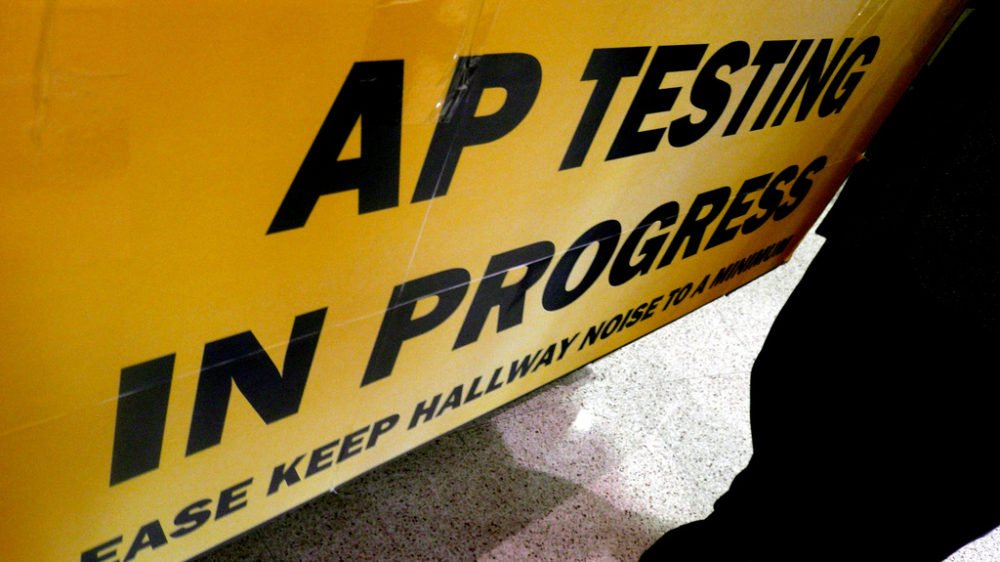American High School Diploma Guide
Updated November 2016
For all the benefits of a US High School Diploma based education in the UAE, choosing an American school is a minefield. There are very significant repercussions at stake for a student’s education, and future career and/or higher education study, if parent’s make a mistake in their choice of school or curriculum.
The first key challenge presented to parents is that the American (or US) High School Diploma does not have a single consistent curriculum, or a single awarding body.
This may not be news if you are from the United States, it is however mystifying if you are not: It is very different from most other global qualifications, including the IGCSE, International A Level, International Baccalaureate Diploma or those offered by either the CBSE or CISCE.
In fact, the High School Diploma can be issued without any accreditation at all.
To that end we, and our sister site whichschooladvisor, argue that the first step for any parents in Dubai seeking a US education for their children, must be to ensure that the qualifications issued by an any America school are actually underwritten and accredited.
Accreditation must be provided by one of eight US accrediting agencies recognised by the US Secretary of Education. Of these, the most common in the Emirates is the New England Association of Schools and Colleges (NEASC).
Prospective parents too, seeking an International Baccalaureate school offering a High School Diploma as an alternative qualification to the IB DP, need also to check that is underwritten by one or more of these bodies. If not, the qualification will effectively be simply issued by the school and will carry no value with universities as even a part pre-qualification for undergraduate entry. Diplomas that are not accredited are likely to also be of questionable value in industry.
Some IB schools currently award High School Diploma qualifications as a fail-safe to students who do not achieve the High School Diploma – parents need to check whether these are accredited.
If there is no single awarding body for the High School Diploma, there is also no agreed consistent syllabus. This is not simply an issue in the emirates. In reality, in the US, there is no such thing as an ‘American’ curriculum since each state in the US makes its own decisions and sets its own standards.
Some efforts have been made to provide this consistency in those schools adopting “Core Common State Standards” [CCSS] in the teaching of English, Mathematics and the humanities, and the “Next Generation Science Standards” (NGSS] in the teaching of Sciences and the Social Sciences.
Even with these in place, however, the degree of latitude schools have in defining their curriculum, teaching and qualification standards means that parents are going to need to bury down into the detail of every US school’s individual offer. Having the CCSS and NGSS in place, however, does at least, theoretically, provide some sort of guarantee of the subjects children will be taught.
Prospective parents should also be aware that accreditation generally requires meeting only a set of minimum standards; schools in the US are expected to considerably over achieve against them.
The first questions then that every prospective parent seeking a US education for their children in the Emirates must ask their prospective school(s) are:
(1) Are you accredited by one of the 8 accrediting agencies?
(2) Do you follow the Common Core State Standards in the teaching of the Arts?
(3) Do you follow the Next Generation Science Standards in the Sciences and Social Sciences?
We recommend that these are the basic minimum requirement to place any US school on your shortlist. These are the minimum – after this it is about boring down into the detail of each school’s offer – and the degree to which they add enrichment and their own programmes to exceed these minimum standards of accreditation and provision.
There is one further hurdle.
The American High School Diploma is also the subject of unresolved disagreement about how it relates to international qualifications. For example, it continues to be subject to debate whether it relates better to IGCE and IB MYP programmes or their International A Level and IB Diploma higher counterparts. Prospective parents for American schools need to be very aware of this danger if the aim is to secure a place for their children at international universities.
Cambridge University, for example, does not accept the US High School Diploma as a pre-qualification for undergraduate study. It also requires College Board SATs and at least five College Board Advanced Placement (AP) Tests (at Grade 5 in appropriate subjects). SAT Subject Tests are also not viewed as being equivalent to A Level/IB Higher Level/Advanced Placement (AP) Tests. This is true for the majority of UK universities – where some do accept the High School Diploma, the offer tends to be to only intermediate “foundation programmes.”
The High School Diploma, if it is comparable, should, we advise, be generally seen as a qualification aligned with International O Levels or other middle year programmes – not as a pre-qualification for university.
Making sense of this is not simple.
The confusion comes because in all schools the High School Diploma is generally studied over a period of four years by children between the 9th and 12th Grade. In the US it generally represents certification that a child has completed grade schooling, including kindergarten, all through to the 12th grade. The grade and year differences between different international curricular are partially responsible for the misunderstandings.
In fact, whilst the High School Diploma is provided in Grade 12, the best schools offer this in conjunction with a further qualification – the Advanced Placement (AP).
Parents need to ask a further question of their prospective American school(s), namely, whether it participates in the Advanced Placement (AP) Program sponsored by the College Board in the United States.
If it does not, we would advise prospective parents to look elsewhere.
If it does offer the Advanced Placement, it is critical to look into the breadth of subject offer provided by the school, the percentage of students sitting two or more AP subjects – and their pass rate. AP subjects are available for a maximum of 37 subjects.
In summary, and as a rule of thumb, any student graduating from an American School in the Emirates needs to have between two and five AP subjects on top of their fully accredited High School Diploma to be considered for undergraduate entrance to university – and, ideally, to have studied courses to Common Core and Next Generation standards.
Further information can be found in the tables above.
Go to 2016/17 KHDA FINDINGS on WhichSchoolAdvisor.com
United States of America (USA)
There are six accrediting agencies recognised by the US Secretary of Education:
Middle States Association of Colleges and Schools (MSACS/MSA]
Western Association of Schools and Colleges (WASC)
Southern Association of Colleges and Schools (SACS)
New England Association of Schools and Colleges (NEASC)
North Central Association of Schools and Colleges (NCASC)
Northwest Association of College and Schools (NACS)
UAE schools must be accredited by one of these institutions for any awarded certificate to have international value. In 2012 it was widely reported that more than 50% of American schools in Dubai were not accredited. Following this it is now required that all American schools must be accredited, although parents should check this with individual schools.
The dominant accrediting body in the UAE is the New England Association of Schools and Colleges (NEASC).
Between the ages of 14 and 18, Grades 9 - 12.
Not consistent and dependent on the school. All schools should provide courses in English, Mathematics, Science separated into Chemistry, Physics and Biology, ICT, Technology, Social studies (including psychology, economics and history); Physical Education, World Languages and a spectrum of choices from the Creative Arts.
Not consistent. However, as a general rule, Courses studied are generally measured by a mix of attendance, essays, other coursework and practical activities. SATS and AP are the fundamental tools for measuring student performance through examinations - and these are not part of the High School Diploma.
Very little, although there is no consistency amongst schools. As a general rule, a US High School Diploma based education, outside APs or SATS, is primarily an experiential, rather than examined, one.
As with all curricular, how hard they are depends on the child. The US approach, however, is naturally more individualised and targeted towards the experience of learning. It is arguably a much "happier" school process for children across abilities, a feature that comes across strongly and consistently in feedback parents, teachers and students in annual WSA surveys.
Extensive.
Not consistent. Some boards score on points, some on course completion - there is no definitive standard.
Hugely variable, but in curricular terms alone mid-range. The best American schools, however, offering the broadest range of APs and Tier 1 facilities, are some of the most expensive in the Emirates.
It is extremely difficult to transfer into or out of American Curricular schools once the High School Diploma programme is in play, mainly because of the different Grade Years and lack of interoperability between subject requirements.
Transferring between US schools is generally much simpler.
In an increasingly competitive global economy, the High School Diploma, without being re-enforced by APs, is arguably one of the weakest of the post-16 qualifications. Without APs and SATS, it aligns most easily with global middle school qualifications, themselves valuable as a stepping stone to higher, pre-university education and increasingly less relevant in their own right.
Arguably, in the best US schools, a High School Diploma backed education provides excellent breadth of subject choice, whole child focus and, in its concentration on inclusivity, an education that meets the needs of the spectrum of academic, mixed and weaker ability children.
The inconsistency of boards, lack of a common curriculum, differing methodologies of teaching and wholesale differences in measuring attainment, however, result in a qualification that relies on individual schools for its value - and one that globally relies on reinforcement by APs to come into its own.
The inconsistency of boards, lack of a common curriculum, differing methodologies of teaching and wholesale differences in measuring attainment, however, result in a qualification that relies on individual schools for its value - and one that globally relies on reenforcement by APs to come into its own.
As increasingly with all middle school level programmes, the High School Diploma's value lies primarily in providing employers with confirmation that a student has basic required levels of attainment in English and Mathematics. This holds true particularly when students pursue undergraduate study in non-mathematical or English language related subjects.
The High School Diploma, without accreditation, has no value. When properly accredited, and with high scores, it may be used by Universities in conjunction with AP scores to determine whether a prospective candidate meets the requirement for admission. It is the number of APs taken, and respective scoring in each subject, however, that is the predominant pre-qualifier.
• As its best, offers an exceptionally rich, wide ranging curriculum with outstanding individual child centred learning
• Schools are empowered to go significantly beyond the basic requirements of the Diploma with the latitude to develop education in some areas, including music and the performing arts, that more fixed curricula may dilute
• WSA feedback suggest consistently that the US curriculum, at its best, provides for the happiest schools – this in feedback from teacher, student, parent and pupil stakeholders
• Lack of standardisation
• Some children still being awarded non-accredited High School Diplomas
• Not all schools offer APs resulting in graduating students forced to study outside school to catch up - and their being between one and two years behind equivalent academic profiles of alternative curricular students
• Common Core and Next Generation not standard, with some schools following one, both or neither
• Complexity and muddle puts many parents – and their children, at risk of choosing schools that simply do not meet age appropriate international standards for industry or university progression










































































Leave a Response